News
-
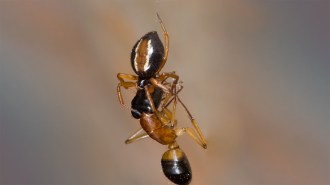 Animals
AnimalsThis spider literally flips for its food
The Australian ant-slayer spider’s acrobatics let it feast on insects twice its size, a new study shows,
By Freda Kreier -
 Climate
ClimateGas flares are leaking five times as much methane than previously thought
The flares burn off methane at 91 percent efficiency. Achieving 98 percent efficiency would be like taking nearly 3 million cars off the road.
-
 Humans
HumansHow to get a crying baby to sleep, according to science
Science has come up with a recipe for lulling a crying baby to sleep: Carry them for five minutes, sit for at least five more and then lay them down.
-
 Psychology
PsychologyThe pandemic may be stunting young adults’ personality development
People typically become less neurotic and more agreeable with age. The COVID-19 pandemic may have reversed those trends in adults younger than 30.
By Sujata Gupta -
 Health & Medicine
Health & MedicineThis robotic pill clears mucus from the gut to deliver meds
A whirling robotic pill wicks mucus from the gut, allowing intravenous drugs such as insulin to be given orally, experiments in pigs suggest.
By Meghan Rosen -
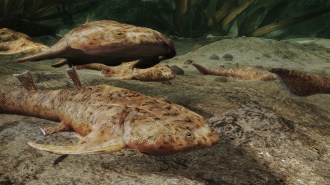 Paleontology
PaleontologyAncient fish fossils highlight the strangeness of our vertebrate ancestors
New fossils are revealing the earliest jawed vertebrates — a group that encompasses 99 percent of all living vertebrates on Earth, including humans.
-
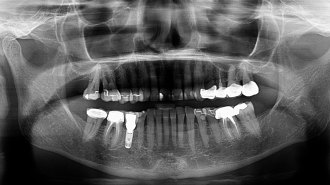 Health & Medicine
Health & MedicineFalse teeth could double as hearing aids
Dental implants can conduct sound through jawbone, making them candidates for discreet, high-quality hearing aids, researchers say.
-
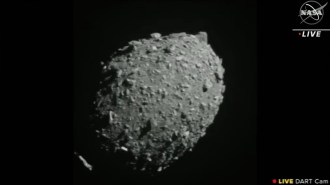 Planetary Science
Planetary ScienceNASA’s DART spacecraft just smashed into an asteroid — on purpose
If the first-ever attempt to knock a space rock off course works, it could provide a blueprint to protect Earth from a killer asteroid.
-
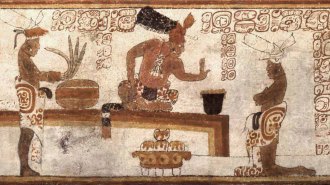 Anthropology
AnthropologyIn Maya society, cacao use was for everyone, not just royals
Previously considered a preserve of Maya elites, cacao was consumed across all social strata, a new study finds.
-
 Environment
EnvironmentMangrove forests expand and contract with a lunar cycle
The carbon-sequestering trees grow in a roughly 18-year cycle according to tides influenced by the moon’s orbit, a study in Australia finds.
-
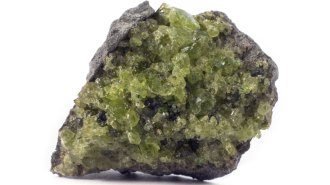 Earth
EarthHere’s how olivine may trigger deep earthquakes
Olivine’s transformation into another mineral can destabilize rocks and set off quakes more than 300 kilometers down, experiments suggest.
By Nikk Ogasa -
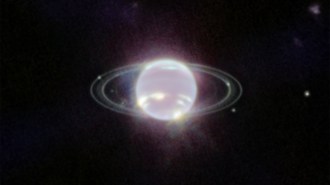 Planetary Science
Planetary ScienceHere is the first direct look at Neptune’s rings in more than 30 years
In 1989, the Voyager 2 spacecraft took the first pics of Neptune’s rings. Now, NASA’s James Webb Space Telescope is providing a more detailed look.